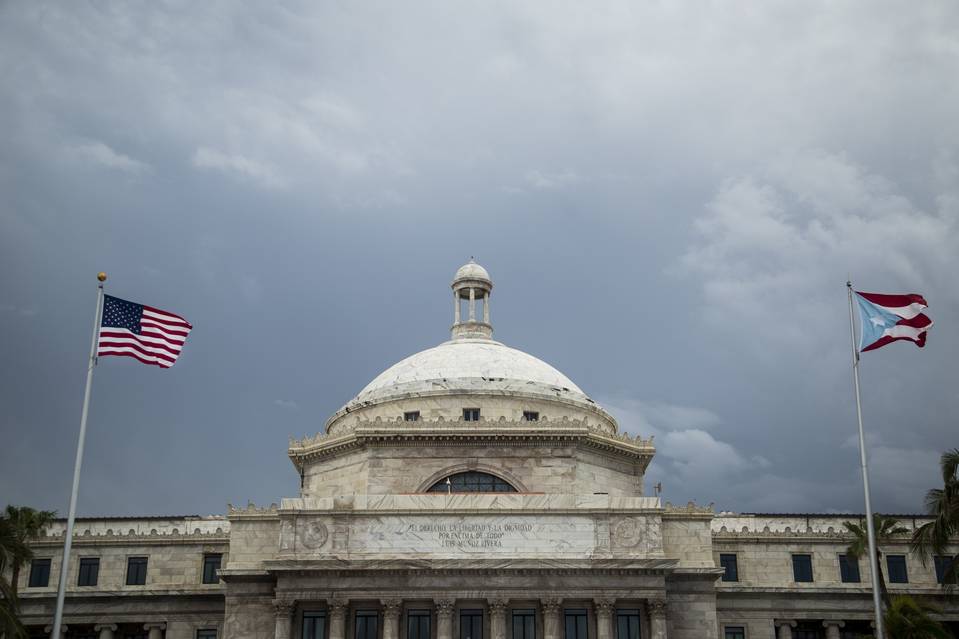Media, Democrats silent as US Supreme Court rules immigrants can be indefinitely detained
By Eric London
28 February 2018
In a 5-3 decision handed down on Tuesday, the United States Supreme Court ruled in Jennings v. Rodriguez that the government can arrest and indefinitely detain immigrants, depriving them of the fundamental right to bail.
As a result, hundreds of thousands of immigrants will be locked up in internment camps as their immigration cases proceed, with no opportunity for release until their cases are decided—a process that often takes years. Roughly 450,000 immigrants were jailed in detention centers at some point during the last year, and that number will increase astronomically after yesterday’s ruling.
The decision makes no distinction between undocumented immigrants and those with legal permanent residency. It means millions of immigrants living in the US are subject to arrest and indefinite detention.
This milestone event has passed with virtually no comment in the corporate-controlled press. As of Tuesday evening, the online front pages of the Washington Post, CNN, MSNBC and Politico had no coverage of the ruling, while the New York Times had a single article far down its page. At the same time, these five sites featured a combined 23 front-page articles on the anti-Russia witch hunt.
No major Democratic Party official has made a statement on the ruling, and the Twitter accounts of Bernie Sanders, Nancy Pelosi, Elizabeth Warren, Charles Schumer, Hillary Clinton and Barack Obama are all silent.
The case was initiated by Alejandro Rodriguez, a Mexican citizen who was jailed in 2004 and held in detention without bond as his case made its way through the arduous immigration appeals process. In 2007, after being imprisoned for three years, he filed a habeas corpus petition challenging his long detention. The District Court for the Central District of California ultimately certified a class of plaintiffs including thousands of similarly situated immigrants on whose behalf the suit was fought. Many class members have been detained for longer than six months.
Justice Samuel Alito’s majority opinion shows the depth of support within the ruling class for police-state methods of rule. “Detention during [immigration] proceedings gives immigration officials time to determine an alien’s status without running the risk of the alien’s either absconding or engaging in criminal activity,” the decision reads. The ruling overturns a Ninth Circuit Court of Appeals decision mandating bond hearings after six months of detention. Alito scolded the Ninth Circuit for the “implausible” argument that indefinite detention “raise[s] serious constitutional concerns.”
Alito, joined by Justices Clarence Thomas, Anthony Kennedy, Neil Gorsuch and John Roberts, mocked the three-justice dissent for “devoting the first two-thirds of its opinion to a disquisition on the Constitution.” Thomas and Gorsuch agreed with the result but said the court should throw the challenge out because immigrants do not have the habeas corpus right to even question the legality of their detention.
Justice Stephen Breyer, whose dissent was joined by Ruth Bader Ginsberg and Sonia Sotomayor, warned:
“No one can claim, nor since the time of slavery has anyone to my knowledge successfully claimed, that persons held within the United States are totally without constitutional protection. Whatever the fiction, would the Constitution leave the Government free to starve, beat or lash those held within our boundaries? If not, then, whatever the fiction, how can the Constitution authorize the Government to imprison arbitrarily those who, whatever we might pretend, are in reality right here in the United States? The answer is that the Constitution does not authorize arbitrary detention. And the reason that it is so is simple: Freedom from arbitrary detention is as ancient and important a right as any found within the Constitution’s boundaries.”
Elsewhere, he added, “We need only recall the words of the Declaration of Independence, in particular its insistence that all men and women have ‘certain unalienable Rights,’ and that among them is the right to ‘Liberty.’”
Although the Democratic appointees’ dissent makes additional warnings about the impact of yesterday’s decision, there has been no comment on the role of the Democratic Party in paving the way for the decision. Democratic nominee Elena Kagan recused herself from the decision because she was solicitor general when the Obama administration argued against granting the plaintiffs a bond hearing in the lower courts and in support of indefinite immigrant detention.
The statutes cited by the Alito majority were passed with bipartisan support. When Clarence Thomas and Neil Gorsuch argued that immigrants have no right to even file habeas corpus petitions based on final deportation orders, they cited a statute enacted as part of the Illegal Immigration Reform and Immigrant Responsibility Act of 1996, which had bipartisan approval in Congress, including from Democrats such as Harry Reid, Dianne Feinstein, Elijah Cummings, Steny Hoyer and Sheila Jackson-Lee, and was signed into law by Democratic President Bill Clinton.
The case now heads back to the Ninth Circuit. In rejecting the six-month bond requirement set by that court, the Supreme Court remanded for further deliberation on the merits of the immigrants’ constitutional claims.
Jennings v. Rodriguez is further proof that the Bill of Rights is a dead letter. Both parties have signed off on mass surveillance, illegal war, state torture, black site prisons and drone assassinations of US citizens without warrants or trials. The decision of the political and media establishment to downplay the significance of Tuesday’s ruling shows that there is no constituency for the defense of democratic rights in the American ruling class.
The authorization for a regime of mass indefinite detention is an existential threat to workers of all national origins, regardless of immigration status. There is a history in the US, including during miners’ strikes in Bisbee, Arizona in 1917 and Colorado from 1901 to 1903, of the government indefinitely detaining and even deporting striking workers from one state to another at the behest of the corporations. Not only will the decision be cited as the Trump administration expands the network of immigrant internment camps across the country, it will soon be turned against US citizen workers as well.











